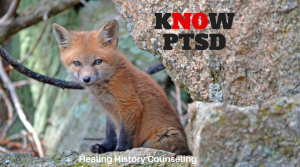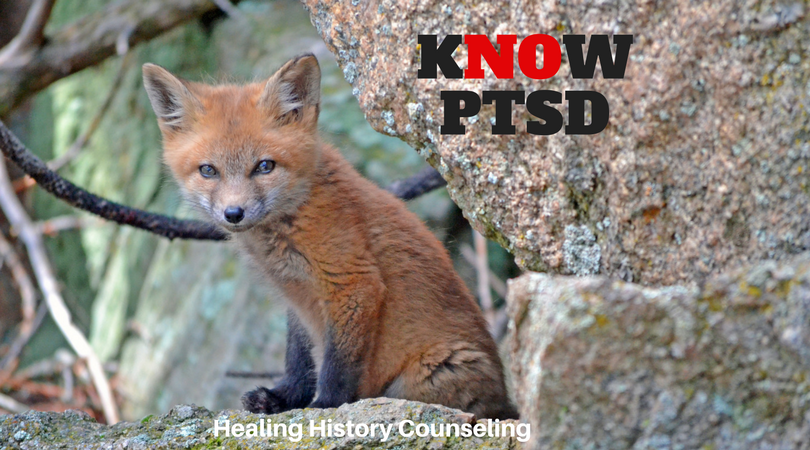

Too many people have sat in my office and said "What happened to me wasn't bad enough." They’ve told me that they shouldn’t be struggling the way they are because there is "no trauma" in their past. The problem with this sentiment is that the very fact that they are struggling is proof that what happened was bad enough, that it was traumatic for them! Unfortunately, the belief persists and gets in the way of many people getting the help that they need.
I believe there are several issues that are contributing to this tendency to undervalue the impact of our experiences.
- Narrow Definition: Most people have a very narrow definition of what qualifies as “bad enough” to cause PTSD. We have no problem believing that being a soldier and having gone to war can cause PTSD. We accept that being brutally sexually assaulted can cause PTSD. But we struggle to accept that a “simple” mugging or waking up during a surgery can cause PTSD.
- Comparing Events: Although it can be very helpful to hear about other people’s experiences and know that we are not alone. Too often, we start comparing what happened to other people to what we experienced and deciding that since other’s experiences were so bad, ours wasn’t bad enough.
- Skewed Perspective: As an adult looking back at events that happened to us as children we see the events as trivial or insignificant. We fail to consider that we didn’t experience these events from the adult perspective or with the adult’s abilities and knowledge. When we are children, events that seem small to adults, are much bigger and much scarier. Children are significantly smaller than adults. They have less experience; their brains are less developed and thus they may not be able to reason or figure out solutions that adults may find obvious. They are also dependent on their caregivers to be taken care of; if the caregiver is part of the problem the situation becomes even more confusing and overwhelming for a child.
How to Know if it Was Bad Enough
So how do we figure out if what happened to us was actually significant enough to cause PTSD? And more importantly, how do we start allowing ourselves to see those experiences as enough? You can figure this out by exploring a more complete definition of trauma and by doing a life audit.
Big “T” trauma and little “t” trauma
It can be helpful to understand trauma in the context of two categories of trauma. Big “T” traumas are the events that we commonly think of as “big enough”. Even so, most people’s definition of big “T” trauma is still too narrow. Events that we experience, witness or are threatened with that causes (or can cause) serious injury, sexual violence (all sexual violence qualifies), or is life threatening. In fact, even if the event was only thought to be dangerous in one of those ways it fits into big “T” trauma. So, being robbed with an unloaded gun counts. A prank that was only meant in fun can qualify too; if the person really believed they were at risk of serious injury, sexual violence or at risk of actual death they may have experienced that as a big “T” trauma. For a little kid, they might be traumatized by watching a horror movie or watching their parents fight loudly. When we expand the definition of big “T” traumas to include these events we have a better picture of many of the possible causes of PTSD. But we still are missing many events.
These are the small “t” traumas. Small “t” traumas may not technically qualify as a cause of PTSD but many therapists agree that they can be at the root of someone’s PTSD symptoms (even if they don’t qualify for the PTSD diagnosis). Small “t” traumas include child neglect and any event that cause upset and emotional damage. It can even be a “small” event. If the event pushes you beyond your ability to manage and leaves lasting emotional harm then it probably qualifies as a small “t” trauma. Most importantly, small “t” traumas are often uniquely personal. The loss of a pet, marital strain, financial difficulties, and other events that exceed our ability to cope and upsets our emotional balance. Often these events are more or less stressful for someone depending on context. For example: financial difficulties may not be a small “t” trauma if you have friends or family that can help you through but may be traumatic if you are a single mom with no one who can help. Your previous experiences can also impact if an event is a small “t” trauma. If you grew up in a home that was always financially strained, and you frequently had little or no food… smaller financial difficulties may be small “t” traumas for you.
Once we expand out definition of qualifying events to truly encompass all possibilities, it becomes more reasonable to see how the events we have experienced qualify as “big enough.” The fact that these events are still causing us problems is what truly matters in the end. But how do we know if these events are the cause of the difficulties we are currently experiencing? It can be helpful to take a few minutes and do a life audit.
Do a life audit
The most important step is determining if it is still causing you problems in your life. In the end this is what matters. If it’s not causing you problems, then it doesn’t matter if it is or isn’t a “trauma.” If it is causing you problems, then it’s a trauma for you. Take a few minutes and explore the impact of the event(s) on your life. How is this event impacting your relationship with your partner, your parenting, your friendships, your work life, your faith? If you feel like you can trace problems you are having in your life today back to that event(s), then it was “bad enough”.
Look inside yourself. How do you feel when you think about that event(s)? Can you remember the event calmly? Does it feel like the event is back in your past? Do you feel tolerably sad (or other appropriate emotions) about that event having happened in the past? Or, do you become upset when you think about this event? Does it feel like the event is happening again when you think of it? Do you avoid ever thinking about that event? Do you find yourself doing things (like drinking, drugs or hurting yourself) in order to get away from the memory of the event? Do you feel dirty or ashamed when you think of that event? If you feel or do these things, then this event was traumatic for you.
If, after doing a life audit, you feel that this event is causing you problems or could be the root cause of your PTSD. Then I recommend you seriously consider finding a good trauma therapist and resolving this event in order to reduce or remove its impact on your present-day life. Please, stop beating yourself up for your event not being “big enough” to have the impact it is having on your life. Accept that it simply is and decide if you want to resolve the issues you have around that event so it stops having this impact on your life.
Usually I do not read article on blogs, however I would like to say that this write-up very compelled me to take a look at and do it! Your writing style has been amazed me. Thank you, very nice article.